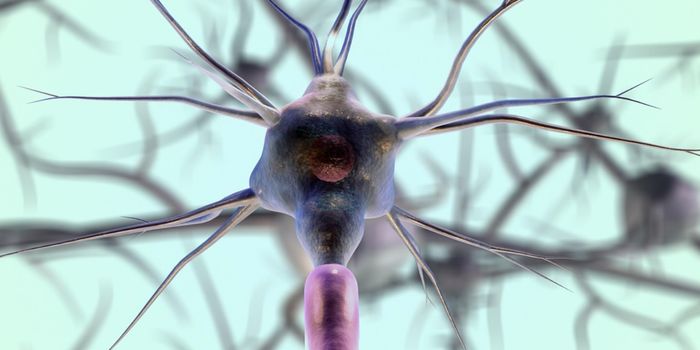Parkinson's disease (PD), a neurodegenerative brain disorder that occurs when the brain stops producing the neurotransmitter, dopamine, limits a person's ability to regulate movements and emotions. The symptoms usually take years to develop, and people live with the disease for a long time. In the United States, 50,000-60,000 new cases of PD are diagnosed each year, adding to the one million people who currently have the disease, according to the National Parkinson Foundation. The Centers for Disease Control (CDC) rated complications from Parkinson's disease as the 14th leading cause of death in the United States. Approximately four to seven million people worldwide suffer from PD, from which there is currently no cure (http://www.parkinson.org/parkinson-s-disease.aspx).

Soon, people with PD may be able to treat their symptoms at home without invasive therapy, thanks to a headband-shaped device developed by biomedical engineering graduate students at Johns Hopkins University (JHU). Although the device has not yet been tested on humans, it could enable Parkinson's patients to relieve tremors and muscle stiffness with daily brain stimulation at home.
According to a press release submitted by Phil Sneiderman of JHU to Futurity.org ("At-home Parkinson's treatment fits like a cap"), the quick and painless treatment could serve as an alternative to a current option for patients who are in advanced stages of the disease -- deep brain stimulation, which entails a surgeon implanting thin electrical leads into the brain, after which a pulse generator that is like a pacemaker sends electrical signals to the brain from under the skin. This procedure, which takes 10 to 15 hours to complete, is expensive, according to a JHU team member, Shruthi Rajan (http://www.futurity.org/feed).
The students met Yousef Salimpour, a JHU Medicine postdoctoral research associate studying a painless, noninvasive Parkinson's therapy called transcranial direct current stimulation in which low-level current passes through two electrodes placed over the head to tweak electrical activity in specific areas of the brain. The technique can be used to excite or inhibit these nerve cells. The treatment is experimental, but has attracted attention because it does not require surgery and is inexpensive, safe, and relatively easy to administer without any side effects.
The students explained that they wanted to create a portable, safe version of the technique that could be used by a patient at home without a clinician's supervision. In designing a prototype to provide current for only 20 minutes a day at a level prescribed by a physician, they also enlisted the assistance of actual patients to come up with a comfortable design that fits like a headband and goes on like a baseball cap.
Salimpour's group is going to take the device, called the STIMband, to the next level - FDA approval - with the help of another student team. They may add a wireless connection to enable remote adjustments by physicians.
The patients involved in creating the prototype could not be happier about the idea of home treatment becoming a reality, Salimpour concluded.









